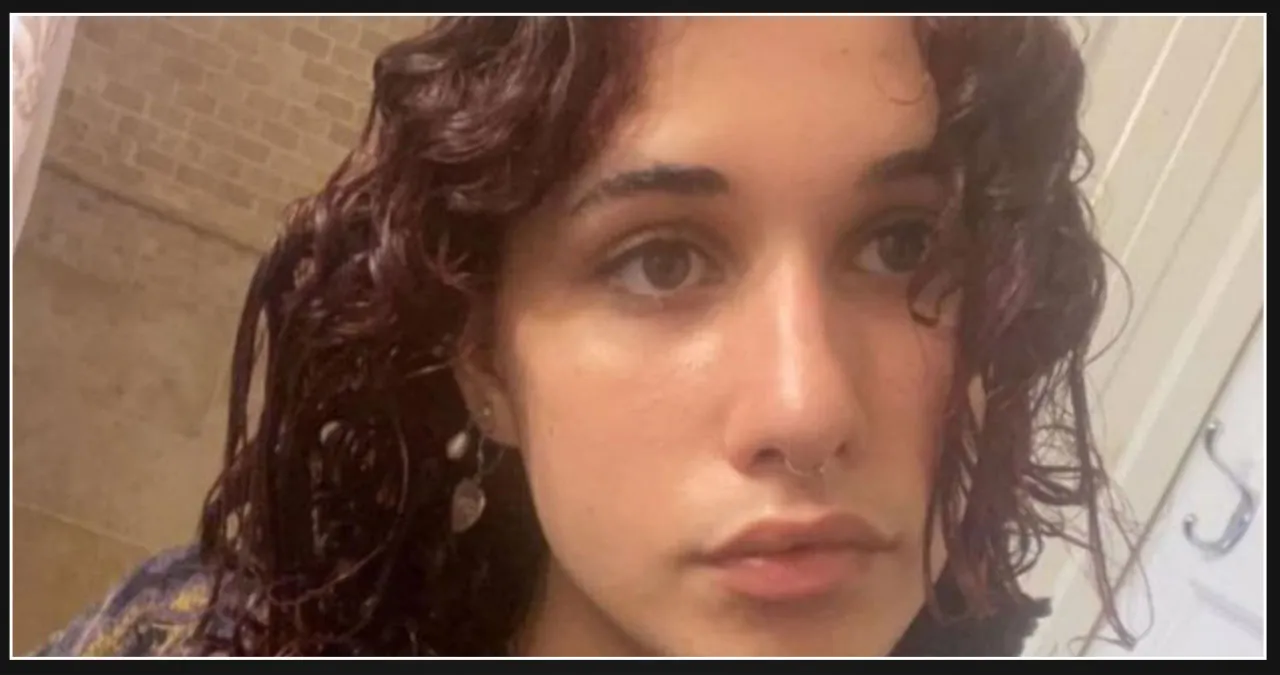A UCLA student is suing multiple California health care providers and hospitals for medical negligence, claiming she was wrongly diagnosed with gender dysphoria and then “fast-tracked onto the conveyor belt of irreversibly damaging” puberty blockers, cross-sex hormones, and surgery, according to her lawsuit.
Kaya Clementine Breen, 20, said she experienced sexual abuse as a young child, and by the time she was 11, she “began struggling with the thought of developing into a woman and began to believe that life would be easier if she were a boy,” according to her suit filed last week in Los Angeles County Superior Court. When she expressed this to her then-school counselor, the counselor told her “that she was transgender and called her parents to tell them the same.”
According to the lawsuit, Breen was also suffering from anxiety, depression, and undiagnosed post-traumatic stress disorder when her parents took her to the Center for Transyouth Health and Development at Children’s Hospital Los Angeles, where she was diagnosed with gender dysphoria—the distress one can experience when their gender identity and birth sex are in conflict—and began receiving transition-related care at the age of 12.
“This case is about a team of purported health care providers who collectively decided that a vulnerable girl struggling with complex mental health struggles and suffering from multiple instances of sexual abuse should be prescribed a series of life-altering puberty blockers and cross-sex hormones, ultimately, receive a double mastectomy at the age of 14,” Breen’s lawsuit states.
In an interview with NBC News on Thursday, Breen said, “In retrospect, I wish that somebody had suggested real, genuine therapy first, instead of gender-specific therapy, because really the only therapy that I received until much later was specifically focused on gender dysphoria, and didn’t connect my gender dysphoria to anything else.”
Court documents state that Breen started taking puberty suppressants at the age of 12, received cross-sex hormones from the ages of 13 to 19, underwent a double mastectomy at the age of 14, and that these treatments caused her “mental health to progressively decline.”
Breen said she began to doubt her decision to transition after beginning dialectical behavior therapy, a sort of talk therapy that aims to help persons dealing with powerful emotions, early this year.
Breen’s lawsuit names several defendants, including Dr. Johanna Olson-Kennedy, an adolescent medicine physician who specializes in gender-affirming care; Children’s Hospital Los Angeles; Dr. Scott Mosser, a plastic surgeon who specializes in gender-affirming surgery; the Gender Confirmation Center of San Francisco; UCSF Health Community Hospitals; and psychotherapist Susan P. Landon.
A representative for the Center for Transyouth Health and Development at Children’s Hospital Los Angeles, where Olson-Kennedy works, stated that they have been providing high-quality, age-appropriate, and medically necessary care for over 30 years.
“Treatment is patient- and family-centered, following guidelines from professional organizations such as the American Academy of Pediatrics, American Medical Association, and Endocrine Society. We do not comment on pending litigation; and out of respect for patient privacy and in compliance with state and federal laws, we do not comment on specific patients and/or their treatment,” the spokesperson said in an email, adding that “Dr. Olson-Kennedy is unavailable for comment.”
In response to a request for comment, a spokesman for the Gender Confirmation Center in San Francisco, where Mosser works, stated that there is “no such thing as a rubber stamp patient interaction” at their clinic.
“As healthcare providers, and in compliance with HIPAA considerations, we are unable to comment on specific protected health information or pending litigation,” the spokesperson added in their email, which also included a link to a statement from Mosser.
Last week, Mosser’s statement appeared on the Gender Confirmation clinic’s website, praising the clinic for being “at the forefront of gender-affirming surgery, with the wellbeing of our patients as our highest priority.”
“Our robust processes and protocols are designed to ensure that patients navigating our services fully understand the implications of the gender-affirming procedures they may choose to undergo as part of their transition,” Mosser stated. “We regularly hear from former patients sharing updates about the overwhelmingly positive impact these surgeries have had on their lives — messages that continue to arrive many years after their procedures.”
UCSF Health Community Hospitals, which is implicated in the case, told NBC News that Saint Francis Memorial Hospital, where Breen was a patient in 2019, was acquired by UCSF only in August of this year. It made no additional comment.
Breen stated that she does not believe the individual health practitioners cited in her case “intentionally acted in poor faith,” but she claims they were dismissive of her pre-existing mental health difficulties.
When asked what she hopes to get from this lawsuit, Breen said she wants “some semblance of justice or change.” While she is seeking “financial reimbursement for the amount that this has cost me and my family,” she said, she most of all wants to “help dismantle the rumor that no one is ever fast-tracked into gender treatments.”
A long list of major US medical associations, including the American Academy of Pediatrics, the American Medical Association, and the American Psychiatric Association, support transgender minors’ access to transition-related care, such as puberty blockers and cross-sex hormones, and have condemned state laws that limit such care.
“There is strong consensus among the most prominent medical organizations worldwide that evidence-based, gender-affirming care for transgender children and adolescents is medically necessary and appropriate. It can even be lifesaving,” Dr. Moira Szilagyi wrote on the American Academy of Pediatrics website in August 2022, when she was the organization’s president. “The decision of whether and when to start gender-affirming treatment, which does not necessarily lead to hormone therapy or surgery, is personal and involves careful consideration by each patient and their family.”
Gender-affirming care for kids can take numerous forms depending on the child’s age and circumstances. Care for young children may include a new name or pronoun, rather than physical changes. At the start of puberty, children may begin using puberty blockers to prevent them from developing secondary sex characteristics such as breasts or facial hair. Hormone therapy may follow, allowing the teenager to physically mature into the gender that matches their identity. Many jurisdictions outlaw surgical gender-affirming therapy for minors, but California does not.
“Detransitioners,” or persons who switched genders and then returned to their original gender, have launched various cases in the United States and the United Kingdom over the last few years. In April, a 21-year-old New York woman who had detransitioned sued Planned Parenthood and numerous individual health care professionals, claiming medical negligence and a lack of informed consent. She claimed the defendants hurried her into getting gender-affirming care as a child.
According to the World Professional Association for Transgender Health (WPATH), regretting therapy for gender dysphoria is “extremely rare,” according to research. A 2015 servery by the National Center for Transgender Equality revealed that 8% of respondents had temporarily detransitioned at some point in their lives.
Transition-related care for minors has been a contentious political topic, with Republicans in 26 states recently enacting legislation to prohibit or restrict gender-affirming care for juveniles, according to the Movement Advancement Project, an LGBTQ research tank. The Supreme Court is currently considering a lawsuit that challenges Tennessee’s ban on such care.
The politics surrounding gender-affirming therapy for minors apparently influenced Olson-Kennedy, one of the defendants in Breen’s complaint, to postpone publication of research she did on the effects of puberty blockers. In an October article in The New York Times, Olson-Kennedy stated that she did not publish the results, which found that the medication did not improve the mental health of minors with gender dysphoria, because she was concerned that the findings would fuel the types of political attacks that led to state bans on gender-affirming care.











Leave a Reply